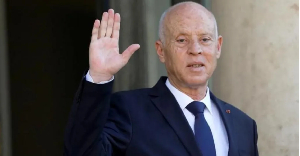The country’s gross international reserves stood at US$4,471 million at the end of June 2014 as a result of the seasonality in foreign exchange flows, the Finance Ministry has said.
The gross international reserves can provide 2.5 months of imports cover compared to the stock position of US$5,632.15 million at the end of December 2013, which could cover 3.1 months of imports.
The value of merchandise exports during the first five months of 2014 was also estimated at US$5,871.9 million, indicating a decline of 7.5 percent from the outturn in the corresponding period of 2013. Seth Terkper, Minister of Finance, made these known in his mid-year review of the country’s economy in Parliament on Wednesday.
Mr Terkper blamed the decline in exports on low receipts from gold and crude oil. “Total value of merchandise imports during the review period was valued at US$6,028.4 million also indicating a decline of 17.8 percent on the level in the corresponding period of 2013. The decline in imports was recorded in both oil and non-oil imports.
“The trade balance for the period January to May 2014 consequently registered a deficit of US$156.6 million, an improvement from a deficit of US$990.8 million recorded by end-May 2013.” On revenues for the period under review, the Minister said total revenue and grants was GH¢9,043.8 million, equivalent to 7.9 percent of GDP as against a target of GH¢9,527.9 million, equivalent to 8.3 percent of GDP.
“The shortfall in total revenue and grants for the period was as a result of low disbursement of project grants from our development partners and lower than anticipated domestic revenue collections. In nominal terms, the provisional outturn was 14.3 percent higher than the outturn for the same period in 2013.” Total tax revenue for the period amounted to GH¢7,076.8 million, 2.7 percent lower than the budget target of GH¢7,273.7 million.
The shortfall in tax revenue, compared to the target, was partly due to the slowdown in economic activity, the delay in the implementation of the change in petroleum excise from specific to ad valorem, lower than anticipated revenue from excise taxes, as well as the delay in the implementation of VAT on fee based financial services.
In addition, he stated that declining gold prices on the world market and rising operating cost led to lower corporate income taxes from the mining sector.
Business News of Friday, 18 July 2014
Source: Daily Guide













